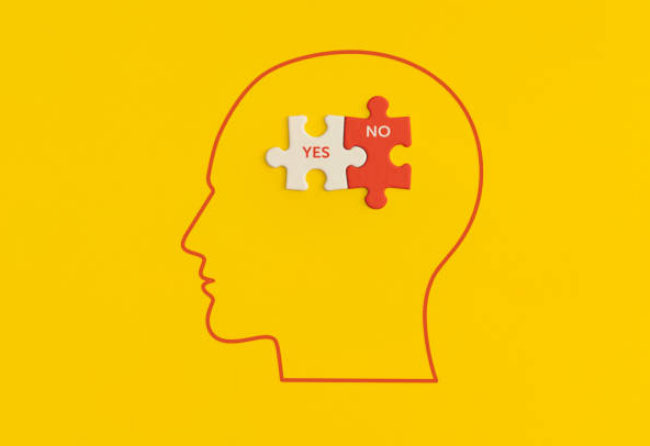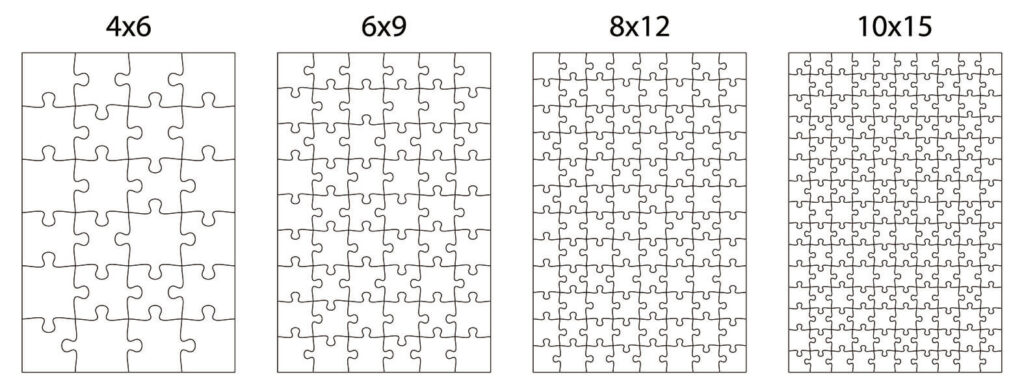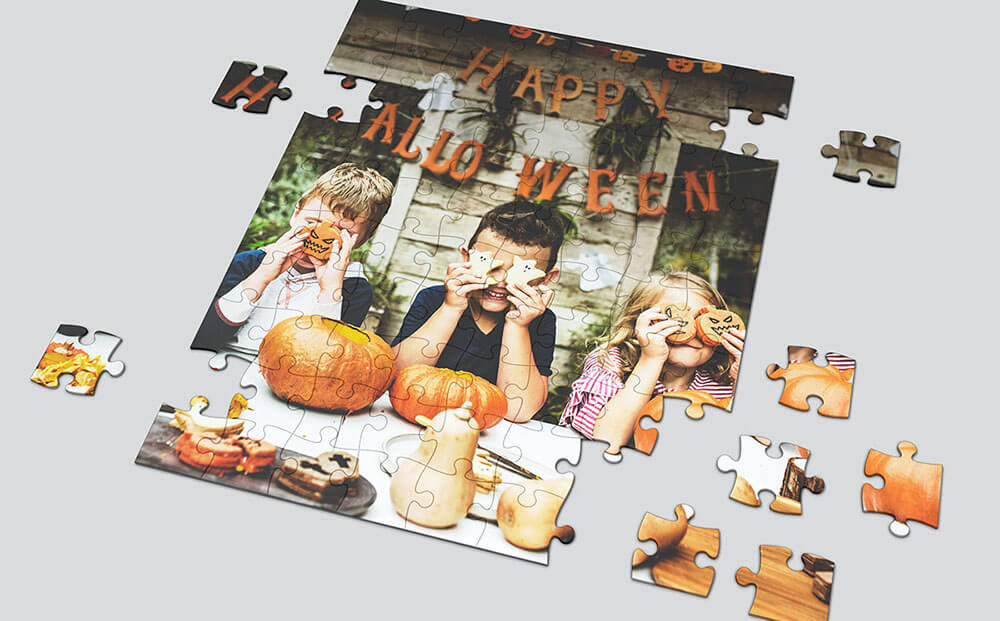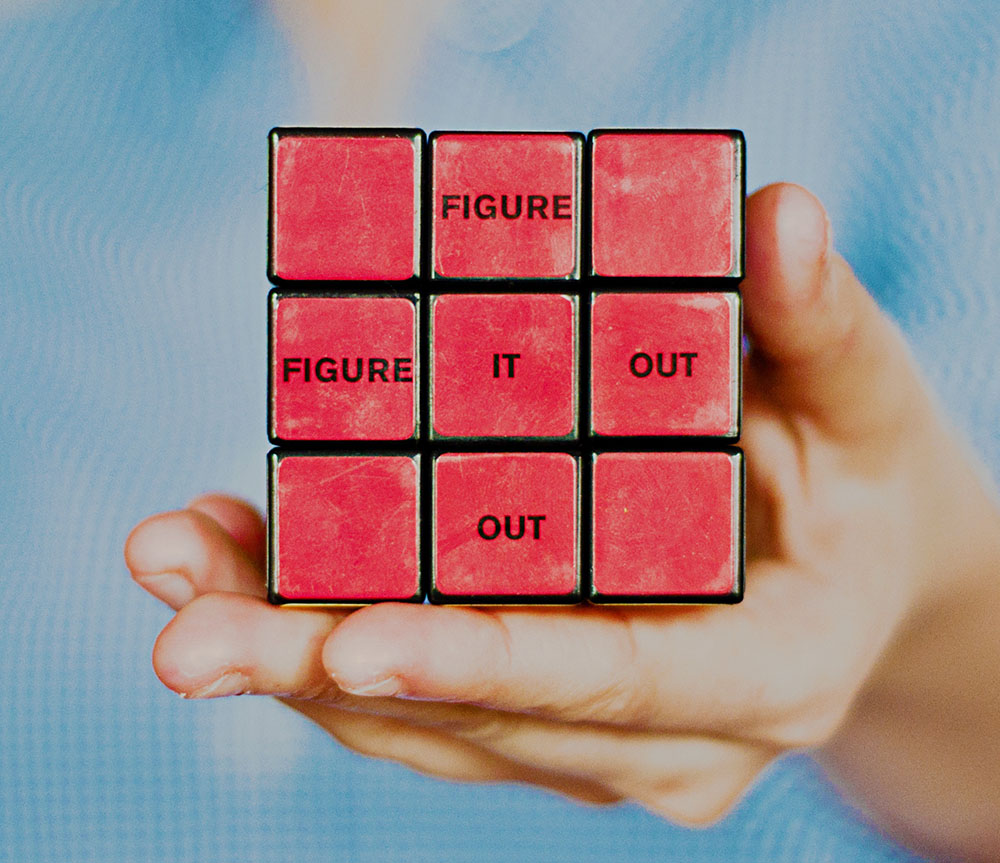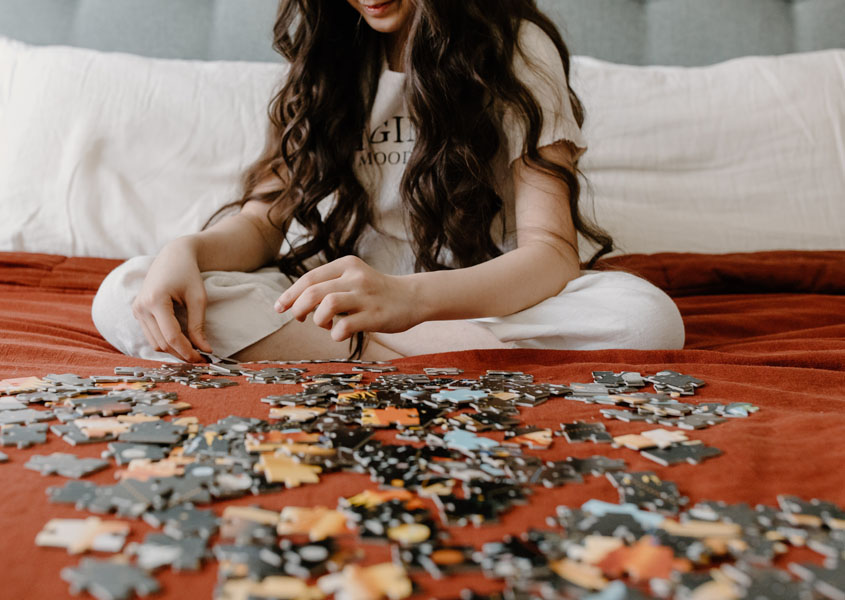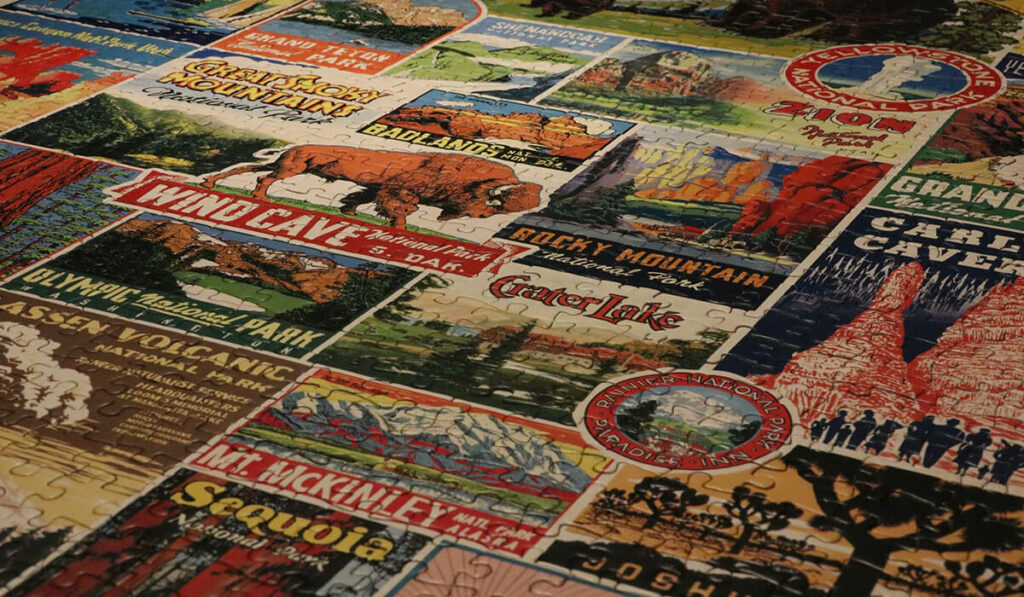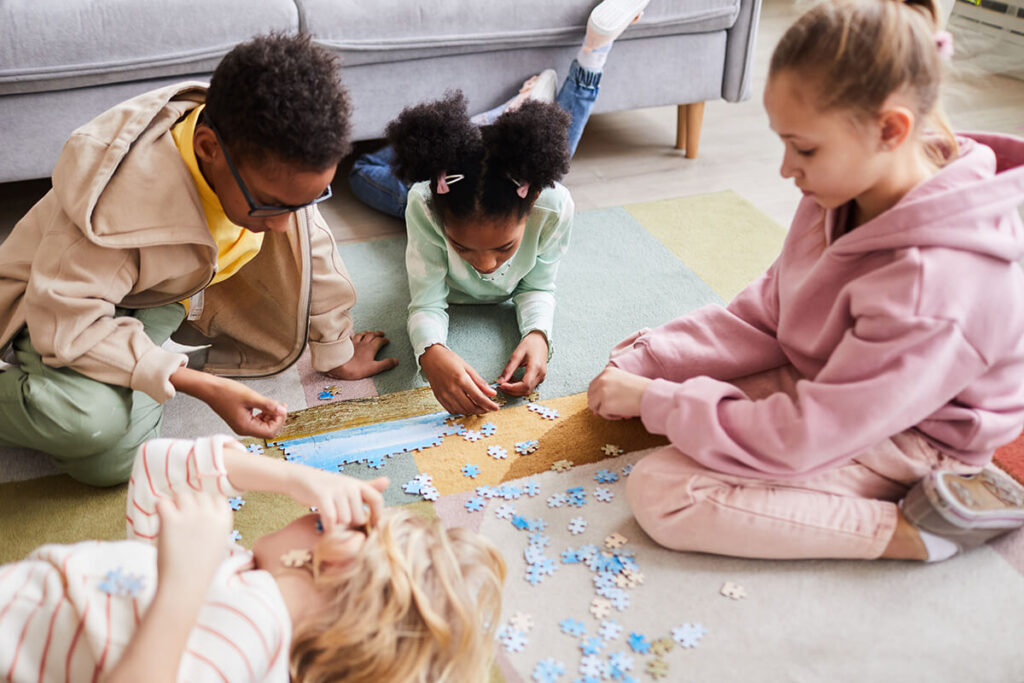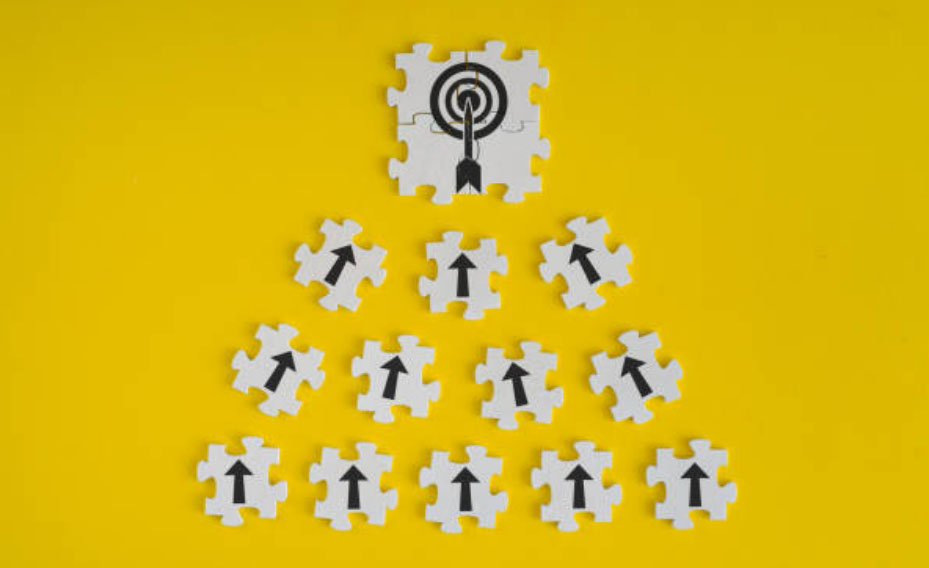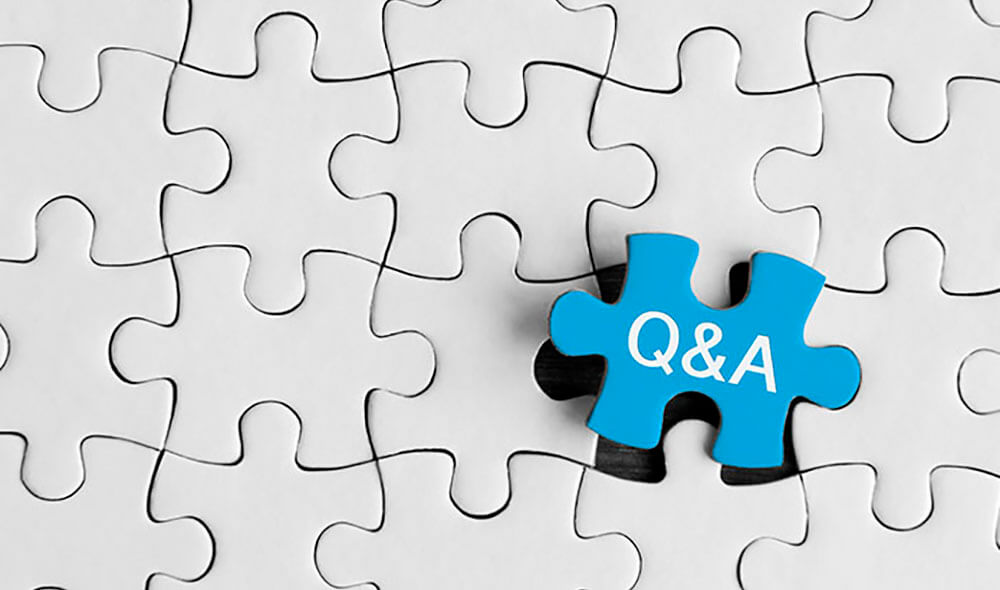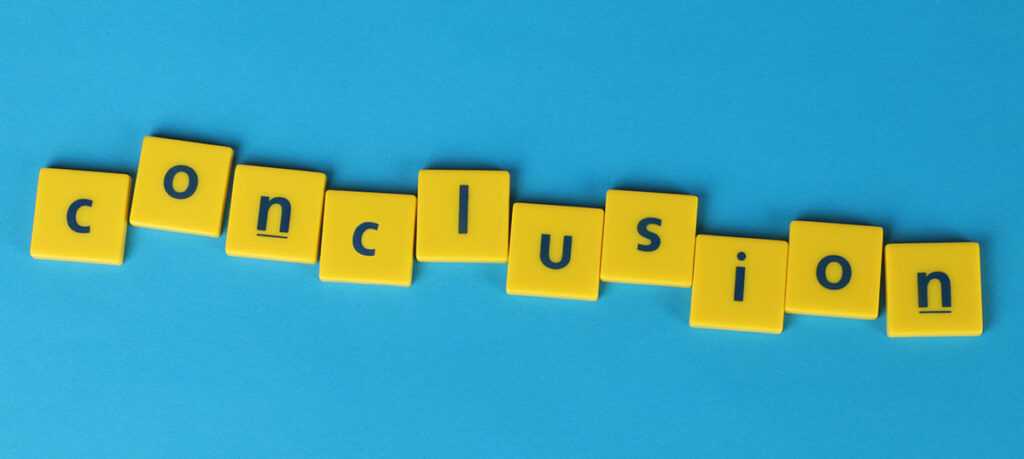Table of Contents
ToggleAs the world evolves, several methods of educating children are being introduced more than just textbooks and classrooms. Parents, educators, and guardians began to recognize the importance of using games, toys, and other playing tools to improve a child’s intellectual performance.
However, out of many games, a jigsaw puzzle is well recognized, and several kids prefer it to most board games. Most significantly, during COVID-19, there was a high demand for puzzles by parents for their children from notable companies like Jabay, Ravensburger, Ceaco, and others.
Most importantly, as a parent, choosing age-appropriate puzzles that align with your child’s age and development and can also enhance their problem-solving skills, cognitive abilities, and critical thinking is essential.
Without further ado, let’s dive into how to choose the perfect puzzles for your kids, tips for a child to get the most use of puzzles, types of kids’ puzzles, and other relevant information you should know.
Choosing The Right Puzzles For Your Kids
As a parent, there are several factors you should consider before getting a puzzle for your child. These factors can be based on the child’s age, the level of cognitive thinking, the preferences and interests of the child, and others.
However, below are significant factors you should consider when getting a puzzle for your kids, alongside some essential tips and guidelines:
1.Complexity Level
Before getting a puzzle for your child, you have to consider the puzzle’s complexity. The first question you should ask yourself is, can my child solve this puzzle considering their cognitive abilities and skills? To answer this, you have to understand your child better.
Tips to consider:
a) Start with simple puzzles: You don’t have to start from complex to simple; instead, why don’t you start from simple to complex and watch your child grow? You can get simple puzzles with fewer pieces and larger sizes for a child just beginning.
b) Gradually increase difficulty: As your child grows from being an amateur and you’re convinced they can solve simple puzzles, you can graduate them to solving more pieces with complex designs. It improves their cognitive abilities.
c) Start challenging: You can challenge your child with more complex puzzles. However, you can help them in case they feel frustrated.
2.Consider Themes And Interests
Consider your child’s interests and preferences before choosing any themes. Choosing the right pieces will enhance the engagement and enjoyment of the puzzle.
Tips to consider:
a) Check their hobbies and passions: You must know your child’s hobbies and passions to choose the perfect themes for them. It will enhance their motivation and desire to complete the puzzle.
b) Educational Value: You can also consider getting puzzles with educational value and entertainment, such as world maps, solar systems, and others
c) Variety and rotation: Apart from choosing specific themes, you can get puzzles with various themes to expose your child to different subjects.
3.Safety Consideration
You have to check the puzzle’s safety certification to avoid unnecessary hazards. For example, children taking the puzzle piece to the mouth can cause a choking hazard.
Tips to consider:
a) Non-toxic materials: You must consider getting non-toxic materials that won’t harm your children.
b) Avoid small parts: For younger kids, avoid getting small pieces of puzzles, which can be hazardous for them. Make sure their puzzle pieces are large enough for their age range.
c) Consistency supervision: it’s recommended that you supervise your children while playing puzzles to prevent some unnecessary accidents.
4.Consider Puzzle Type
Another thing you need to consider is the type of puzzle you want to get for your child. Several kids’ puzzles include 3D, wooden, floor, and others.
Tips to consider:
a) Consider your child’s interest: Most kids love playing with 3D puzzles compared to others, while other kids might prefer floor puzzles. You have to ask your child the kind of puzzle they want.
b) Educational value: As a parent, you have to consider puzzles that will enhance your child’s academic abilities. You must often consider the educational objective you want your kid to achieve, such as motor coordination, problem-solving skills, and others.
c) Durability: You have to consider the durability of the puzzle in case your child is rough with puzzles.
5.Consider Your Child’s Age And Development Stage
Lastly, you have to consider your child’s age and development stage. Don’t force a child to solve puzzles that are beyond their cognitive abilities and age. As mentioned above, make it simple to complex, not complex to simple, as they grow in age and knowledge.
Tips to consider:
a) Consider the cognitive abilities: A child’s age often doesn’t determine their cognitive abilities. Therefore, since you’re their parent, you should be able to know your child better.
b) Language development: You must consider your child’s language skills. Can they follow verbal instructions? If yes, then you have to proceed by getting a suitable puzzle for them since they can understand puzzle directions and hints.
c) Seek professional advice: If you need clarification about your child’s development, you can consult the help of professionals like pediatricians and child development specialists to suggest appropriate puzzles for your child.
Age Recommendation For Child’s Puzzles
Watching your child grow, you must understand the puzzles recommended for each growth stage. The table below gives an explicit analysis of that:
| Age | Puzzle Types | Pieces |
| 0-12 months | Soft, cloth, or fabric puzzles | Less than 12 pieces |
| 1-2 years | Peg, knob, or wooden puzzles | Less than 12 pieces |
| 2-3 years | Wooden or floor puzzles | 12-20+ pieces |
| 13-4 years | Alphabet and number puzzles | 12-20+ pieces |
| 4-5 years | 3D and building puzzles | 30-60+ pieces |
| 5-6 years | Geography and map puzzles | 100+ pieces |
| 6-8 years | Science and nature puzzles | 100+ pieces |
| 8-12 years | Riddles and advanced logic puzzles | 100+ pieces |
Top Tips To Help Your Child Get The Most From Jigsaw Puzzles
If you want your child to effectively get the most out of playing jigsaw puzzles not just for fun but for intellectual development and growth, follow these tips below:
#Tip 1: Prioritize Their Interest
If you want your child to continue playing puzzles even if they are frustrated, you must prioritize getting puzzles that interest them. Consider themes that portray their hobbies and preferences rather than what you want for them. Doing this makes them desperate to complete the puzzle and ask for another.
#Tip 2: Show Them Different Techniques
You don’t have to restrict a particular puzzle technique to your child. You can show them different styles instead and allow them to choose the most comfortable and suitable for themselves.
Some kids like to collect all the edge pieces and fit them together, while others prefer to focus on a specific area of the image before moving to another. Irrespective of any techniques, allow your child to choose for themselves.
#Tip 3: Work Together
Children love it when their parents take an interest and get engaged with what they’re doing. Although working together doesn’t mean you should take over, you can support them by communicating with them or giving them hints. Also, when you work with your child, you teach them how to work together as a team for a common goal and improve their communication skills.
#Tip 4: Let Them Be Independent Too
For your child to gain confidence and a feeling of reward after the puzzle is completed, allow them to do it themselves. Doing so will enable them to solve problems alone. Also, the child might discover their unique problem-solving method due to trial and error.
#Tip 5: Allow Them To Have Breaks
Make sure you allow your child to have a break for refreshment. They can take a break for a drink, snack, or even walk around to refresh their mind. Most significantly, when you discover they are getting frustrated or bored playing the game.
#Tip 6: Swap The Puzzle
If you discover that your kid isn’t comfortable with a specific puzzle, they cannot hold the pieces together, or the image is too complex, try to swap the maze for the one that will be more convenient for them. Failure to do this could put them off completely.
#Tip 7: Praise And Be Patient
Please encourage your child by praising them instead of complaining. Playing puzzles shouldn’t be a way but a pleasure. Therefore, give them some words of encouragement like ‘I believe you can do it, baby,’ ‘You got it, baby,’ ‘Never give up,’ and others.
Types Of Puzzles For Kids
You may consider getting a puzzle for your child, and you need to know the name or differences between the puzzles available. Here is the list of puzzles you can get for your child’s growth:
Knob Puzzles
Knob puzzle is one of the most suitable puzzles for kids, most especially kids between 1 to 3 years old. They’re mostly known to be traditional puzzles with a handle called a knob on each piece. These knobs help a child to lift the work and fix it to its original place.
Floor Puzzles
Floor puzzle is very common among little kids. It is a giant jigsaw puzzle designed to be spread on the floor for children who love to move around while solving puzzles. The interesting fact is that more than one kid can solve these puzzles.
3D Puzzles
A 3D puzzle is a three-dimensional puzzle, different from the ordinary puzzle format. Players must assemble a 3D model of buildings, vehicles, or other objects. This puzzle helps kids to think three-dimensionally.
Alphabet And Number Puzzles
These puzzles are specifically made to educate kids on letters and numbers. They’re capable of maximizing kids’ English ability and mathematics skills. Therefore, if you want to educate your kids by not using textbooks, you can get alphabet and number puzzles.
Solar System Puzzles
It’s essential to introduce your child to nature beyond the spheres. An excellent way to start is to get a solar system puzzle that teaches them about planets, the stars, and our position on the Earth. This will enhance their knowledge of geography and other related courses.
Musical Instrument Puzzles
These puzzles are made with images of musical instruments for kids to be able to differentiate tools from each other. Importantly, these puzzles are perfect for kids wanting to become musicians.
Logic And Brain-Teaser Puzzles
These puzzles can develop kids’ problem-solving skills and enhance their critical thinking ability. Examples are Sudoku, crosswords, logic puzzles, and others.
Math Puzzles
These kinds of puzzles help kids to practice and develop their arithmetic skills enjoyably. Some can be 3D, while others are standard puzzles with several images, including shapes, quantity, numbers, space, etc.
Benefits Of Puzzles For Kids
The jigsaw puzzle significantly contributes to a child’s physical and mental development. Apart from the general knowledge acquired from books, teachers, and parents, a child can develop several skills from playing puzzles. Below are the significant benefits of a child playing puzzles:
Cognitive Skills Development
Puzzle helps kids develop cognitive skills, which involves acquiring, processing, and analyzing information. It also enhances children’s ability to reason, think, and solve critical problems. However, their cognitive development and problem-solving skills depend on the type of puzzles they can solve based on their age limit.
Moreover, jigsaw puzzle enhances kids’ spatial recognition skills, which involves recognizing how people and objects move through the environment. Importantly, puzzles inspire kids to think thoughtfully while fixing the pieces to create the intended image.
Enhance Fine Motor Skills
A jigsaw puzzle is a significant game that enhances fine motor skills, especially children’s fine motor abilities. Fine motor skills are the ability to make movements using the small muscles with the eyes, hands, and fingers, making it possible for children to assemble puzzle pieces.
Most importantly, as children continue to play puzzles, their finger muscles are strengthened while their hand-eye coordination improves.
Improve Language And Communication Skills
While more attention is focused on the cognitive part of puzzles, research has proven that puzzles can improve a kid’s language and communication skills. When children work on jigsaw puzzles, they often ask for help identifying missing shapes and colors.
It eventually encourages their communication skills as they interact and share their ideas, strategies, and opinions with parents, siblings, and friends. Moreover, as a result of effective communication with others, children can express their thought processes verbally.
Improve Perseverance
Puzzle is a functioning tool that helps kids develop perseverance and a zealous and determined spirit of completion. Most times, kids feel frustrated after many trials of completing a puzzle, but the unrest of abandoning the uncompleted puzzle keeps them on track till the puzzle is completed.
As a result, they’re trained to persevere and see the end of their success. This skill is not only limited to school and classroom knowledge alone but for life after school also.
Enhance Self-Esteem
The joy and excitement of completing a puzzle boost the self-esteem and confidence of children. After a lengthy trial and frustration, children have a sense of achievement, which eventually enhances their confidence and independence since they complete the puzzle themselves. As a result, they learn to depend on their knowledge, which might help them in their tests and exams.
Improve Concentration
Apart from the aforementioned, puzzle is an excellent way of improving children’s concentration and focus. The desire to complete the puzzle can take all their focus and attention, which might lead to success and help them to concentrate on other areas. However, parents are advised to get a puzzle that a child can handle and which is within their age range.
Enhance Relaxation
Puzzle helps kids to de-stress and relax their emotion. They make children occupied and forget their problems and anxiety. Playing puzzles is often a good idea for children after school or on the weekend to relieve academic stress. Moreover, consistency in playing puzzles aids children in learning, maturing, and emotional regulation.
Improve Maths Skills
Playing puzzle doesn’t only help kid’s reading and writing skills but also aids their ability to solve mathematical problems. As children play puzzles consistently, their brain is wired to think logically, which eventually enhance their passion for solving math equations.
Moreover, some puzzles are designed in shapes to help kids recognize different kinds of conditions and eventually help them in geometry and other related topics.
Practice Color Recognition
Among many, the puzzle also helps children recognize and differentiate colors, which can eventually help them in their school performances. Moreover, color recognition is also helpful after school, most especially for those aspiring to start fine art as a vocation. Also, students wanting to enter the clothing industry and other related occupations need color difference and recognition.
Encourage Social Interaction
Apart from cognitive development, fine motor skills, and others, the puzzle also encourages social interaction and relation of children with others, including their parents, friends, and relatives. It enhances the interpersonal intelligence of kids and the ability to interact with others effectively, which involves verbal and nonverbal communication.
Most times, when kids are stuck for ideas while solving puzzles, they seek the help of their parents or guardians while other kids work in teams to solve a dilemma.
Frequently Asked Questions
1.How Do I Choose The Right Puzzle For My Child?
To get a perfect puzzle for your child, you must consider several things, including age, interests, skill level, and others. Moreover, for a child that’s still very young, consider getting puzzles with large pieces and virtually appealing colors.
2.Are Puzzles Suitable For Children With Learning Disabilities?
Absolutely, yes, the puzzle is one of the games that are suitable for disabled children. Some puzzles are specifically designed for children with learning disabilities. However, selecting the correct type of puzzle for the right child is essential. For example, a child with low vision or upper extremity disabilities should get puzzles with large pieces.
3.Can Puzzle Play Replace Screen Time?
It’s recommended that a kid should spend more time playing puzzles than watching the screen because playing puzzles is a healthy alternative to excessive screen time. Although, there are some movies or programs that a kid can learn from while watching the screen.
4.What Are Some Educational Benefits Of Puzzles For Kids?
As mentioned in this article, the puzzle remains one of the most influential games that educate a child and drastically improve their academic performance. Some of these include critical thinking, problem-solving skills, motor skills, patience, and others.
5.How Can I Ensure My Child’s Safety While Playing With Puzzles?
The first thing to consider is choosing puzzles made from non-toxic materials and ensuring you supervise younger kids when playing puzzles to prevent unnecessary accidents. Also, get puzzles with large pieces for more youthful kids instead of smaller ones.
6.Where Can I Find a Variety Of Puzzles For Kids?
Puzzles are relatively easy to find; you can find them at toy stores closer to you, online retailers, educational supply shops, and manufacturers like Jabay, Ravensburger, and others if you want to get them in bulk.
Conclusion
Puzzle is an exciting game that keeps most kids busy. It offers a world of fun, learning, and personal development capable of boosting cognitive skills, fostering social interaction, and enhancing children’s overall performance.
Nonetheless, not all puzzles are suitable for all children; while some children prefer some types of puzzles compared to others. Therefore, parents must consider several factors, including the child’s interests, disabilities, ages, complexity level, and others, while choosing puzzles for the children.If any questions,please feel free to contact us!
[wpforms id=”2549″]

